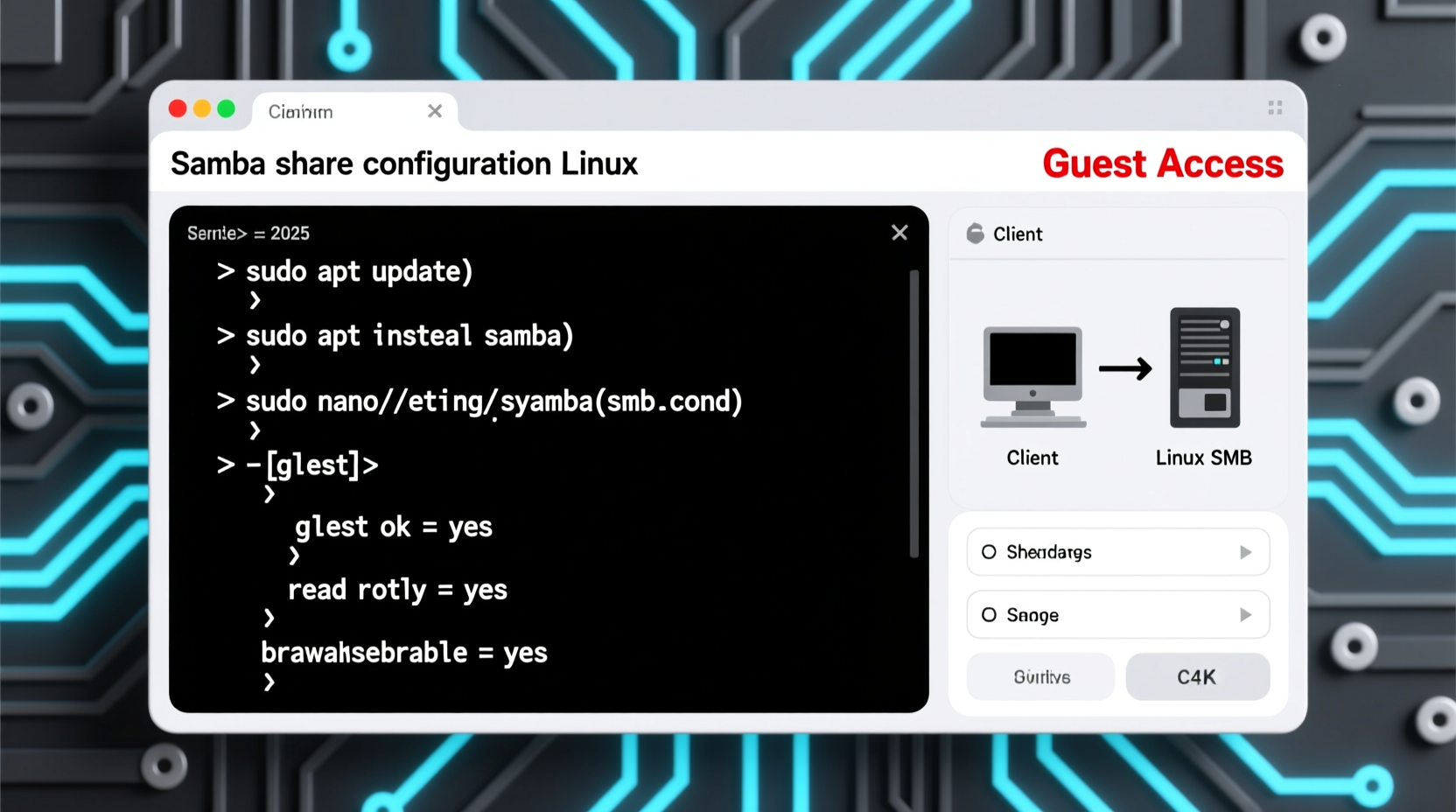Enhancing Network File Sharing with Samba
Mihaita Costin/500px/Getty Images
Samba remains one of the most versatile and comprehensive tools for network file sharing, especially within Linux environments. Whether you're an enthusiast looking to share multimedia files like photos and videos, or a professional seeking the efficient distribution of documents to colleagues, Samba provides a seamless solution. Crucially, it offers the flexibility of password-protected shares for enhanced security as well as guest-accessible shares for convenience.
Secure vs. Guest-access Shares
Mastering Samba's configurations is essential. While I've discussed the secure setup in the past, let's now explore how to create shares available to any network-connected device without authentication requirements. However, always exercise caution with guest shares by avoiding sensitive information sharing due to potential security risks.
Prerequisites
Before delving into guest-access shares, ensure Samba is correctly installed on your Linux machine and that you have a user account with sudo privileges recognized by your system. This foundational setup is imperative for both secure and guest shares.
Step-by-step Samba Guest Share Setup
The subsequent sections break down the method of configuring a guest share.
Create the Guest Directory
The first action required is forming the directory intended for guest file storage. Execute the terminal command:
sudo mkdir /home/share
Adjusting Permissions for Accessibility
Assigning appropriate permissions grants universal access to the directory. Use:
Modify Samba Configuration
Access the Samba configuration file with:
sudo nano /etc/samba/smb.conf
Network Interface Configuration
To secure guest access to the internal network only, amend specific Samba settings. Identify your network interface via:
ip a
Replace the default interface:
; interfaces = 127.0.0.0/8 eth0 interfaces = 127.0.0.0/8 YOUR_INTERFACE_NAME
Modify:
; bind interfaces only = yes bind interfaces only = yes
Incorporate the Guest Share Definition
Add these details at smb.conf's conclusion:
| [public] |
| path = /home/share |
| public = yes |
| guest only = yes |
| writable = yes |
| force create mode = 0666 |
| force directory mode = 0777 |
| browseable = yes |
Restart Samba Service
Solidify the guest share's functionality by restarting Samba:
sudo systemctl restart smbd
Upon successful restart, the directory shall be available to network guests without login requirements. While this setup caters to user convenience, protect sensitive files by considering secure share alternatives.
Considerations for Linux Users
Linux remains a diverse ecosystem offering numerous advantageous distributions and utilities for all levels of users. Whether optimizing aging computers with lightweight distros or seeking the ideal setup for developers, Linux continues to reinvent the personal computing experience.
Conclusion
Understanding Samba's capabilities fortifies Linux's standing as a robust system for both individual and organizational use.











 浙公网安备
33010002000092号
浙公网安备
33010002000092号 浙B2-20120091-4
浙B2-20120091-4